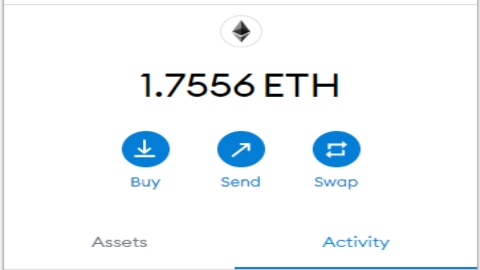The sanctions announced by the president of the United States, Joe Biden, in response to Russia’s attack on Ukraine did not include the cutoff of payments to the country in the SWIFT system or cryptocurrency transfers.
In an announcement Thursday from the White House, Biden said that the United States and its allies and partners would apply sanctions designed to impose “devastating costs” to Russia because of “Putin’s war against Ukraine”. The US president announced that the country will cut off its financial system from the largest Russian bank, Sberbank, in addition to imposing “total blocking sanctions” on VTB Bank, Bank Otkritie, Sovcombank OJSC, Novikombank and their subsidiaries. Biden also named several elite citizens who have “enriched themselves at the expense of the Russian state” as part of the sanctions imposed on Russia.
However, speaking to reporters on Thursday, Biden ad that the economic measures would not extend to cutting Russia off from the SWIFT network – a payments system used around the world – in response to European officials. Leaving this option available to the Russians and apparently not being able to block cryptocurrency transfers could apparently mitigate the impact of any sanctions imposed by the United States and its allies.
According to a Thursday note from Bloomberg, Russian billionaires could potentially avoid any US sanctions using cryptocurrencies to purchase goods and services and continue to make investments outside of countries experiencing the harshest economic shocks due to the invasion. Individuals in Iran were able to request crypto donations for flood victims in 2019 — while under US sanctions — and Venezuelan President Nicolás Maduro proposed a bill in 2020 with the aim of using cryptocurrencies to evade different sanctions imposed on the country.
“If a millionaire is concerned that their accounts may be frozen due to sanctions, they can simply hold their wealth in Bitcoin to be protected from such actions,” said Quantum Economics founder and CEO Mati Greenspan.
Dmytro Kuleba, Minister of Foreign Affairs of Ukraine, urged not to allow Russia to continue using the SWIFT network. President Biden said what the sanctions imposed on the five Russian banks “will have the same consequence, or perhaps greater than SWIFT”, but that blocking the country from the network would remain “as an option” if necessary. Neither Biden nor Kuleba directly addressed the potential impact of cryptocurrencies on sanctions evasion.
One thing to listen for this afternoon is whether these sanctions will include barring Russia from the SWIFT messaging system, which would cut it off from almost all international financial transactions.
(Except crypto.) https://t.co/x952GNxbah
— Scott Bixby (@scottbix) February 24, 2022
Biden’s actions came after reports that Russia had launched an invasion of Ukraine, bombing a military airport near the capital Kiev and striking targets across the country with missiles. By sending US troops to Germany and Poland in response to the attack, Biden appears to be going after Russia both financially and with a show of military might.
However, a New York Times report suggests that the sanctions might not have the impact that the US president intends.
“Russia has had a long time to think about this specific consequence,” said former federal prosecutor Michael Parker. “It would be naive to think that they haven’t exactly played out this scenario.”
The situation in Ukraine continues to develop, but the financial impact of the attacks has reached the cryptocurrency and traditional markets. The price of Bitcoin (BTC) fell to as low as $34,000 on Feb. 24 amid news of the Russian invasion, but has since recovered to trade above $38,000 at press time.
Clarification: The information and/or opinions expressed in this article do not necessarily represent the views or editorial line of Cointelegraph. The information set forth herein should not be taken as financial advice or investment recommendation. All investment and commercial movement involve risks and it is the responsibility of each person to do their due research before making an investment decision.
Keep reading:
Investments in crypto assets are not regulated. They may not be suitable for retail investors and the full amount invested may be lost. The services or products offered are not aimed at or accessible to investors in Spain.
